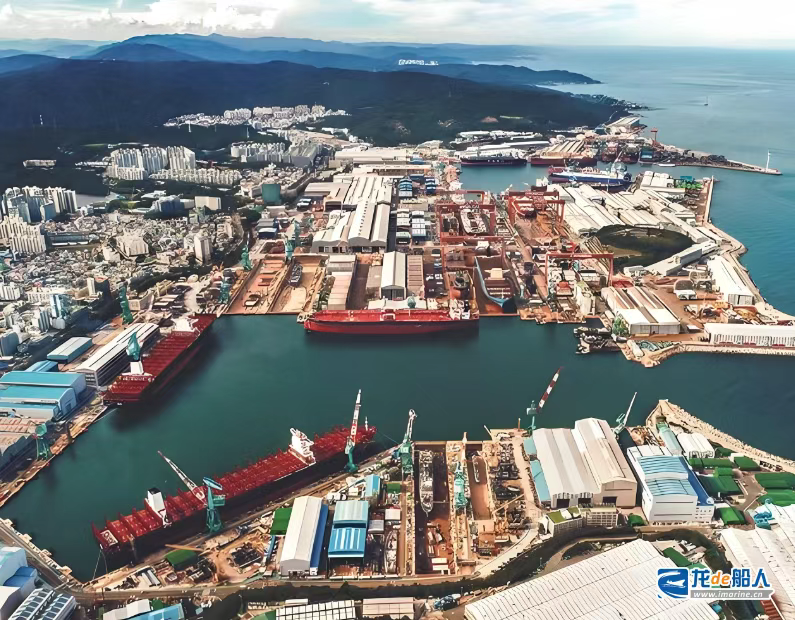According to South Korean media reports, since their first meeting on May 20, HD Hyundai Heavy Industries’ management and labor representatives have held at least 10 rounds of negotiations, but no substantial progress has been made.
On June 30, HD Hyundai Heavy Industries Union (hereinafter referred to as “Union”) revealed that it had applied to the Korean Labor Relations Commission for labor dispute mediation on June 27. The union said: “It has been two months since the salary request plan was submitted to the company, and there has been no substantial progress after 11 rounds of negotiations, so we applied for mediation.”

Due to serious differences between labor and management and the deadlock in negotiations, the union decided to take action to fight for the right to strike and planned to hold a three-day strike vote from July 2 to 4.
If more than 50% of union members vote in favor, and the Korean Labor Relations Commission determines that there are major differences between labor and management and decides to terminate mediation, the union will obtain the legal right to strike.
If the union launches a strike, it is expected to have a major impact on production as the shipyard has a backlog of more than three years of work. Industry insiders said: “Shipbuilding is a labor-intensive industry that requires a lot of manpower. Therefore, it is difficult to bear the labor costs when the industry market is down, so it is not easy to significantly increase wages.”
The union explained the proposed strike as follows: despite at least 10 rounds of negotiations with the management, the management has not yet put forward any proposal. At a time when the shipbuilding industry has entered a super cycle and stock prices and corporate values continue to rise, the management has not mentioned a word about employee wages, so it decided to vote on whether to hold a strike.
In addition, the trade unions believe that the new period of prosperity in the shipbuilding industry presents an opportunity to increase the wages of shipyard workers, which have been stagnant for a long time. Due to years of losses, it is urgent to improve the treatment of shipyard employees compared with other industries.
The union also said: “Our request is not to ask for more, but to hope that the company will give fair compensation and distribution to the efforts and dedication of union members. If the company is sincere in the negotiation, it should put forward a meaningful plan.”
In contrast, the management believes that due to the decline in global shipbuilding orders, there is a fear of a “peak out” scenario, they have shown caution in formulating proposals. From January to May this year, the global cumulative order volume was 15.92 million CGT (515 ships), a 45% decrease from 29.18 million CGT (1,242 ships) in the same period last year—almost halving the figure.
It is understood that the HD Hyundai Heavy Industries Union had submitted the “2025 Wage Negotiation Demands” to the management on April 22, including a basic wage increase of 141,300 won approximately US$103.56, excluding the part of seniority promotion), extending the retirement age (abolition of the peak wage system), increasing seniority allowances, revising the performance bonus calculation standards, and allocating 5 billion won (approximately US$3.664 million) in a special budget to expand rest facilities and improve the treatment of informal employees.
When the wage negotiations started this year, the Korean industry had predicted that HD Hyundai Heavy Industries’ labor and management would engage in fierce negotiations on issues such as wage increases. The head of HD Hyundai Heavy Industries said, “The company is negotiating seriously to narrow the gap between labor and management.”
In 2024, after several rounds of negotiations, HD Hyundai Heavy Industries’ labor and management finally raised the basic salary (including job promotion) by 130,000 won (approximately US$95.28), which means that the two sides have completed negotiations within the year for three consecutive years since 2022.


